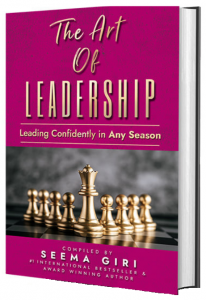Make Your Teams Extraordinary in the Virtual World
Teams can become more extraordinary than ever!
I’ve seen this time and time again. The companies that feel confident about their current company culture, took the time to gather data. We want data in order to effectively strategize. Here’s the information we need.
What works for each individual?
Understand the needs of each team member. Talk with each team member about their wants, needs and views on the new work environment.
❑ What benefits of WFH matter most?
seeing kids off in the morning, having lunch at home with significant other, going to hockey practice or pottery class in the late afternoon
❑ What are they looking for from their leader and company right now?
development of a skill, stability in salary and health benefits, be home when the kids get home from school, quiet time to be more focused and get their work done
❑ What input/collaboration does their work need?
when do they need to get ahold of other people, when are others’ ideas most beneficial, how do they prefer to collaborate – pick up the phone or be able to type out a message, how quickly do they need responses on different aspects of their work and from whom
Find out what employees want and need personally and professionally. Take the time to understand all the nuances. Allow time and space for team members to say exactly how they feel.
These are conversations you need to have at least once a month. We are all continuously learning about and adapting to the new rhythms in our lives. Someone’s view may shift from one month to the next.
What works for the team collectively?
Once you’ve gathered information about individual needs, you want to determine what works for the team collectively. Bring the team together and discuss:
❑ How do the team members want and need to be in touch with each other?
❑ What tools and modes of communication work best?
❑ What schedule of remote work and in-office time works for team members individually and the team collectively?
First, the goal is to get all the information out on the table. Then, guide the team through decision-making about how and when to collaborate.
What works for the work to get done exceptionally well?
Before finalizing operational norms for the team, you want to consider:
❑ How does the work get done best?
Some work is best completed by someone who is heads-down all morning, with no interruptions, focusing on the work. Some work needs an immediate response and the ability to get quick information from others.
❑ What information needs to be shared amongst the team?
success stories, updates, information others need to do their jobs well
❑ When and how can they connect to lift each other up?
With all of this data, now you can decide what schedules, processes, tools, norms (ways of working), and communication will enable your team to get extraordinary results.
Get the “Make Your Teams Extraordinary in the Virtual World Checklist” here.












 A Summary of The Courage of a Leader® 4 Pillars
A Summary of The Courage of a Leader® 4 Pillars




